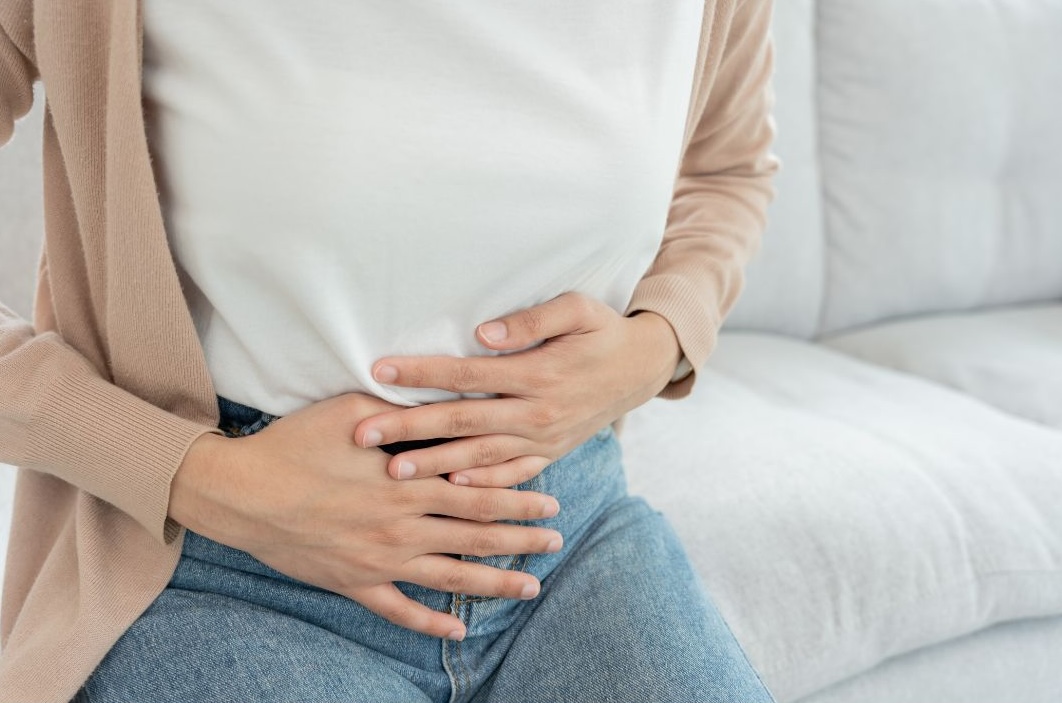Chlamydia is one of the most common sexually transmitted infections (STIs) globally, caused by the bacterium Chlamydia trachomatis.
Early recognition of chlamydia symptoms is needed for effective treatment and preventing complications.
Symptoms of chlamydia can vary significantly between individuals and genders, making it essential to be aware of the specific chlamydia signs and symptoms to look out for.
This article provides a detailed overview of the signs and symptoms associated with chlamydia, helping individuals identify potential infections early.
Understanding these symptoms can aid in timely medical consultation and chlamydia treatment, leading to better health outcomes and preventing the spread of the infection.
Pain when Weeing

Chlamydia can cause a burning sensation or pain during urination, a symptom often mistaken for a urinary tract infection (UTI).
This discomfort occurs because the infection irritates the urethra, leading to inflammation and pain.
There is a need to differentiate between a UTI and chlamydia, as both require different treatments.
If you experience pain when urinating, it’s advisable to get tested for STIs, especially if you are sexually active and have multiple partners.
Ignoring this symptom can lead to further complications, so seeking medical advice is essential for proper diagnosis and treatment.
Discharge
Chlamydia often causes abnormal discharge, which can vary in colour and consistency.
In women, this discharge is usually yellow or green and can have a strong odour. Men may experience a white, cloudy discharge from the penis.
This symptom occurs because the infection affects the reproductive organs, leading to increased mucus production.
It’s advised not to ignore unusual discharge, as it can indicate an infection that needs medical attention.
If you notice abnormal discharge, especially if it persists, seek advice from a healthcare provider to get tested and receive appropriate treatment.
Pain in the Stomach

Lower abdominal pain is another symptom of chlamydia, often mistaken for other conditions like appendicitis or pelvic inflammatory disease.
This pain results from the infection spreading to the reproductive organs, causing inflammation.
Women might experience more pronounced abdominal pain, while men may also feel discomfort.
Persistent lower abdominal pain should not be ignored, as it may indicate a serious infection that requires medical attention.
If you experience ongoing stomach pain, consult a healthcare provider to determine the cause and receive appropriate treatment.
Bleeding After Sex
Chlamydia can cause bleeding after intercourse due to inflammation of the cervix or urethra.
This symptom is more commonly observed in women, but men may also experience it.
Bleeding after sex can be alarming and is often mistaken for other conditions such as cervical polyps or hormonal imbalances.
It’s required you get tested if you experience this symptom, as it can indicate an untreated infection.
Seeking medical advice promptly can help diagnose the cause and provide the appropriate treatment.
Ignoring this symptom can lead to further complications and affect overall health.
Bleeding Between Periods
Intermenstrual bleeding, or bleeding between periods, is another symptom of chlamydia.
This occurs due to inflammation and irritation of the cervical tissue caused by the infection.
Women with chlamydia may notice spotting or heavier bleeding outside their regular menstrual cycle.
Other potential causes of intermenstrual bleeding include hormonal imbalances and uterine fibroids.
If you experience unexpected bleeding between periods, it’s to consult a healthcare provider.
Early diagnosis and treatment of chlamydia can prevent complications and help maintain reproductive health.
Swelling in the Testicles
In men, chlamydia can cause swelling in the testicles, a condition known as epididymitis.
This occurs when the infection spreads to the epididymis, leading to inflammation and pain.
Testicular swelling can be accompanied by tenderness and discomfort. It’s essential to distinguish this symptom from other conditions such as testicular torsion or hernias.
Ignoring testicular swelling can result in severe complications, including infertility.
If you notice swelling or pain in your testicles, seek medical advice promptly to determine the cause and receive appropriate treatment.
Painful Intercourse
Chlamydia can cause discomfort or pain during sex, known as dyspareunia. This symptom is due to the inflammation and irritation of the reproductive organs.
Painful intercourse can vary in severity between individuals and may be more pronounced in women.
This symptom can impact sexual health and relationships, making it an urgent matter to address.
If you experience pain during sex, it’s advisable to seek medical advice.
Early diagnosis and treatment of chlamydia can alleviate this discomfort and prevent further complications.
Inflammation of the Cervix
Chlamydia can cause cervicitis, an inflammation of the cervix, in women.
Symptoms of cervicitis include abnormal discharge, pain during intercourse, and bleeding between periods.
This condition results from the infection irritating the cervical tissue.
If left untreated, cervicitis can lead to complications such as pelvic inflammatory disease (PID), which can affect fertility.
Regular cervical screenings and STI testing are useful for early detection and treatment.
If you notice any of these symptoms, consult a healthcare provider to receive the appropriate care and prevent further issues.
Is Chlamydia Serious?
Untreated chlamydia can lead to serious complications, including infertility and chronic pain.
In women, it can cause pelvic inflammatory disease (PID), leading to long-term reproductive health issues.
Men may experience epididymitis, which can also affect fertility. Chlamydia can increase the risk of contracting other STIs, including HIV.
Identifying the signs and symptoms of chlamydia early is needed for effective treatment and avoiding complications.
Regular STI testing and open communication with sexual partners are needed to maintain sexual health.
If you suspect you have chlamydia, seek medical advice promptly to receive appropriate treatment.
Essential symptoms to watch for include pain during urination, abnormal discharge, lower abdominal pain, bleeding after sex, bleeding between periods, testicular swelling, painful intercourse, and cervicitis.
If you require further assistance or help with our online pharmacy service, please do not hesitate to contact a member of our team.


